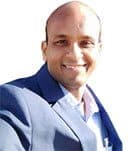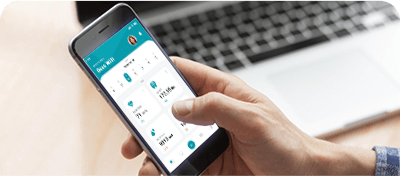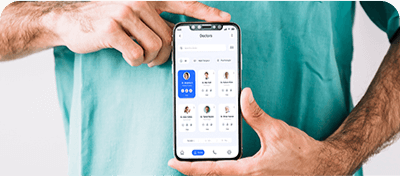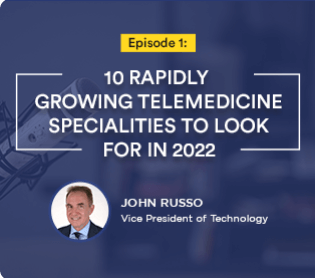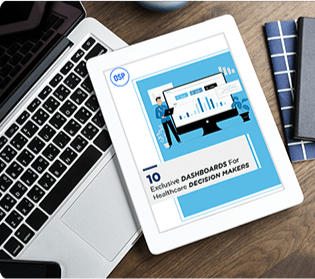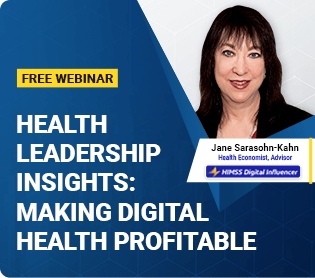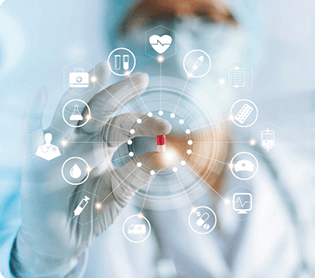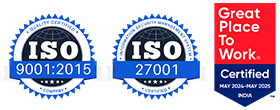Dental care, unlike conventional medical care, is highly localized. A doctor treating a patient with an illness would first view the patient’s medical records to know their medical history. This tells the doctor if the patient is allergic to something, what medication they have had in the past, and so on. Similarly, dentists, too, need to view patients’ medical histories for treatments. Customized dental EMR platforms inform dentists if a patient is allergic to a painkiller medication or has a medical history that might result in an adverse reaction. We will discuss how dental EMR systems can impact dental practices and why dentists should have them.
What is the need for using EHR Dental Software?
Using dental EHR software not only helps dentists with their clinical activities but administrative ones as well. Investing in this type of platform is just that, an investment. Although small dental practices might wince at the initial costs, having EHR dental software offers good returns in the long run. Let’s talk about why dentists are better off having EHR systems made specifically for their profession.
1. Administrative Efficiency
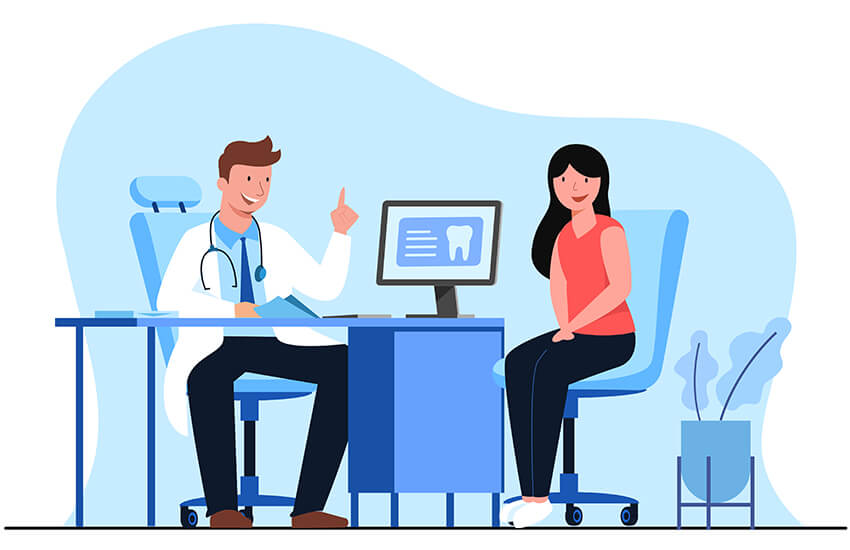
Using dental EHR systems accelerates all the day-to-day activities normally happening at a dentist’s clinic. When a patient walks in, the staff can verify their insurance coverage and view the medical history. This lowers the waiting time for both patients as well as the doctors. Furthermore, such efficiency allows a practice to cater to more patients than it normally would otherwise be able to.
All the relevant information about a patient can be accessed on a screen with a few clicks. This advantage enables just one staffer or even one provider to handle multiple patients satisfactorily.
2. Higher Revenues
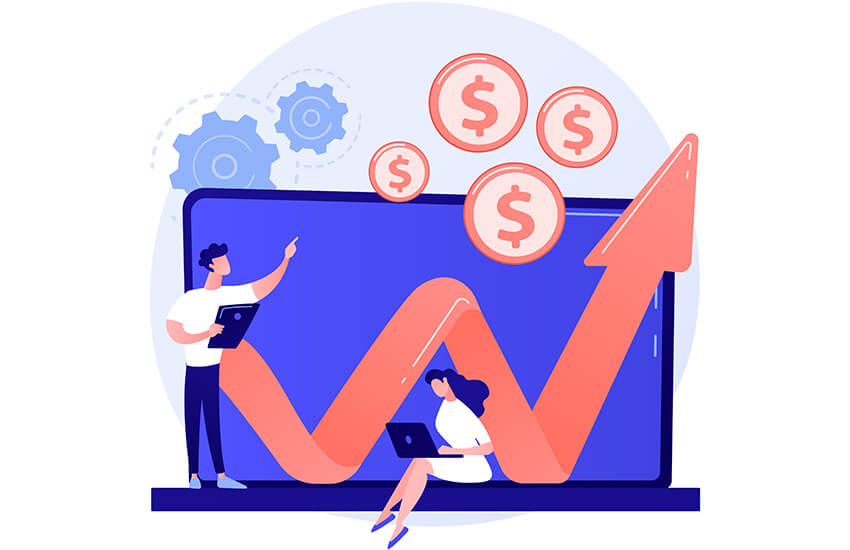
Using dental health management solutions and relevant EHR streamlines the entire billing process. Everything can be conducted from one interface, from verifying patients’ insurance coverage to carrying out charge capture, coding the clinical encounter, and preparing claims. Additionally, numerous types of dental EMR solutions also feature claims scrubbing, which prevents erroneous claims from being submitted to payers.
EHR dental software features help minimize the number of denials and rejections, ensuring steady revenue cycles. Moreover, a smaller staff can manage a higher workload since a single software platform enables all billing activities to be carried out from one interface. This goes on to lower the operating overhead for dental practices, maximizing revenues in the long run.
3. Improved Care Coordination
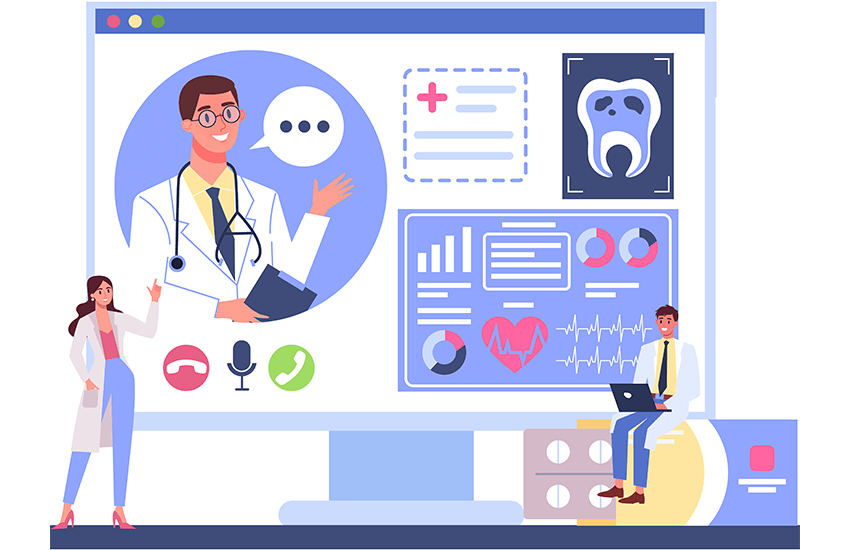
Dental EHR software contains important health information about patients that can be shared outside the clinic. This means that a dentist can share a person’s dental health information with a doctor of any specialization easily and securely. Certain dental problems can be precursors for larger medical problems, making it important for providers to have access to dental health histories.
Since electronic health records make it simple and fast to share medical data, dental EHR software helps improve coordination among physicians.
4. Convenient Storage and Access to Data
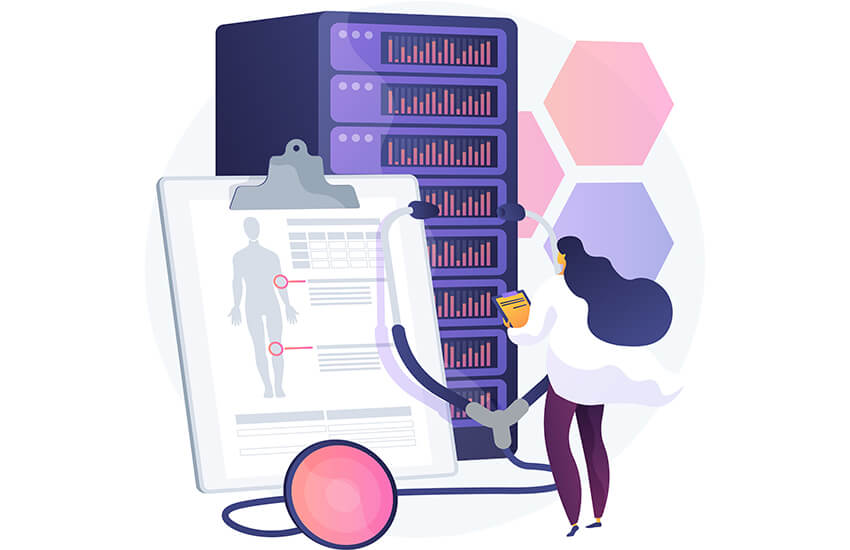
Many dentists across the United States refrain from using a dental EMR solution. The volume of patients’ data would only grow with the passing years as patients grow older and need frequent dental care. Additionally, as a dental practice grows, it is bound to see more patients, which would require reliable data storage. Using dental practice solutions offers a centralized repository for storing and accessing patient information securely.
Physical paperwork and documentation are prone to many problems, like being lost or fading after some years. But the data in an EHR will be secure and safe for future use by dentists.
5. Simplified Charting
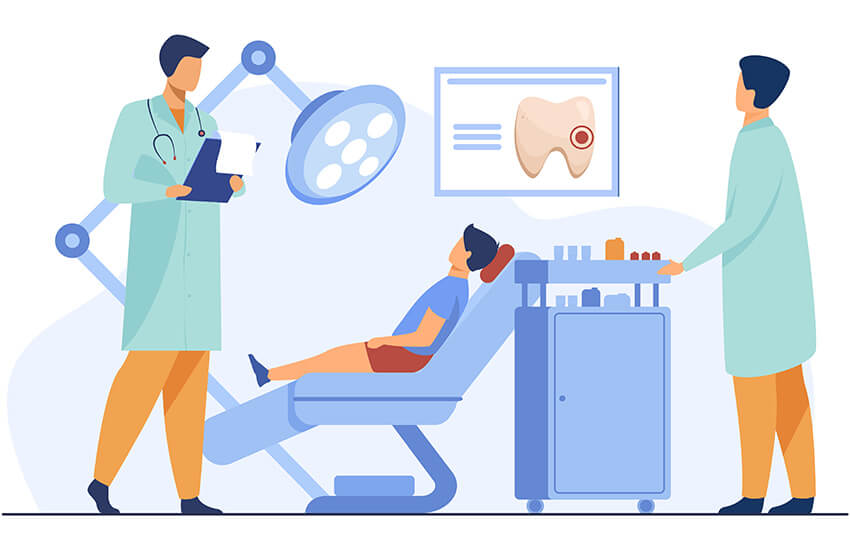
A dental EMR eases the process of charting. This software platform allows providers to enter all the latest information about the treatments administered to patients. This could include everything from routine check-ups to root canals and tooth extractions. Dentists can include X-rays and other information from reports in patients’ medical records faster. Features like customized templates and other data entry functions speed up the process of charting and optimize workloads for dentists.
Important Features For Dental EMR Software to Lookout For
Dentists who want to spend on an EHR solution for their practice would often need help making a decision. This is because many development companies offer different dental information systems with a wide range of features. But there are a few features that are must-haves for just about every dental practice –
1. Interoperability
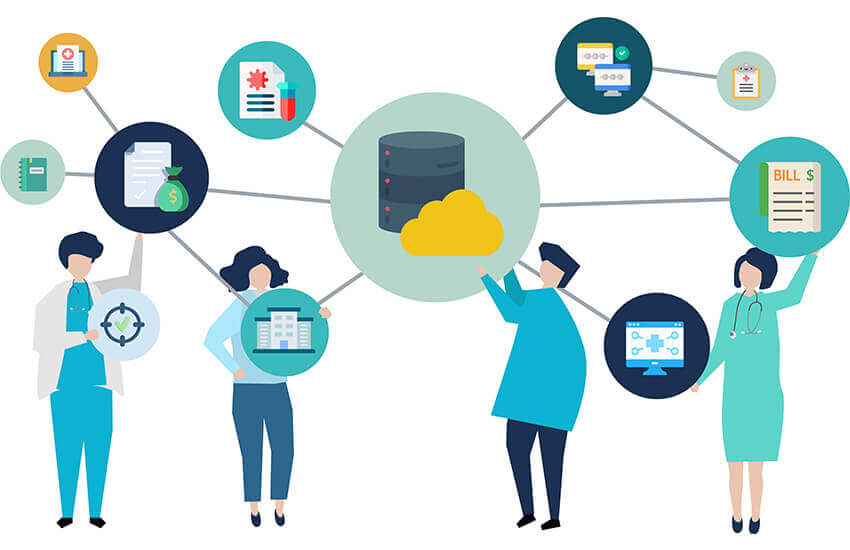
Interoperability allows two different software platforms made by two companies using varying programming languages to exchange data easily. Interoperability is achieved through specialized bridging software called Application Programming Interface (API). These can enable a dental EHR platform to exchange information with billing and coding software and an imaging solution. As a result, a dentist can store a patient’s X-rays in their medical records and bill each encounter quickly and accurately.
The ability to merge multiple medical software into one comprehensively integrated platform streamlines workflows. Since patients’ dental information would be stored in an EHR and accessed for all activities, EHR integration becomes essential for dentists. In other words, Interoperability is a must-have for dental health records software.
2. Customizable Charting
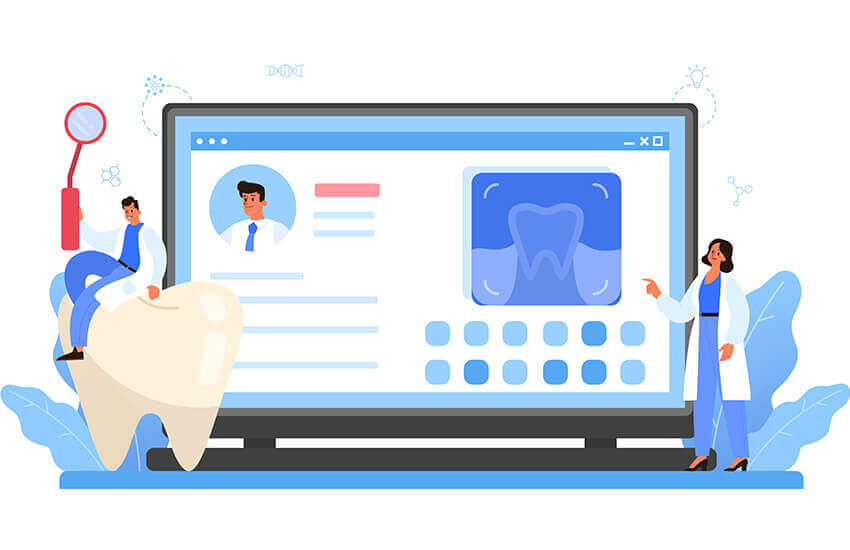
Charting is when providers enter patient information into health records. This is done to keep the records updated and help providers have a complete picture in the future. A dental EMR that offers custom charting functions makes it easy for dentists to enter the latest patient information into the records.
A dentist may fill up a cavity, perform a tooth extraction, a root canal, or even implant teeth. Each of these procedures requires different medications, prescriptions, and processes. A custom template for charting allows dentists to enter the relevant data for any of these procedures quickly and efficiently. This also streamlines the entire process of billing and coding.
3. Cloud Availability
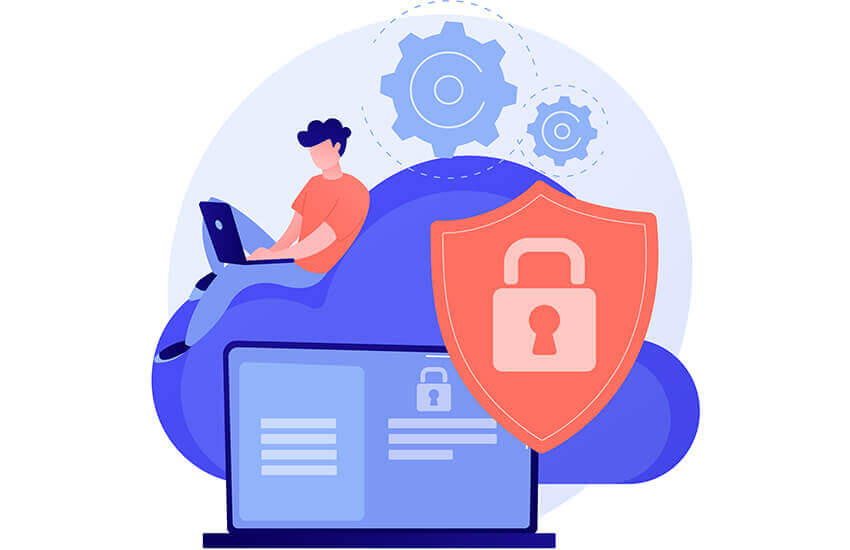
Healthcare cloud computing software is becoming increasingly popular across the country. Dental software systems hosted on the cloud eliminate the need for on-premises installation. This is especially helpful for medium-sized clinics with at least a few dozen patients. The data, as well as all other functionalities, are accessible through a secure web portal. The service provider handles all the IT requirements and updates.
4. Appointment Scheduling

An EHR for dental practices must also feature a patient portal allowing people to book online appointments. This feature is an effective means of patient engagement, as people can avoid missing their consultations by scheduling and rescheduling at their convenience.
Conclusion
Dentists need to be faster and more willing to adopt dedicated EHRs into their everyday workflows. This is because of a need for government mandates and the specialized nature of dentistry. Moreover, most dentists in rural communities don’t even see enough patients to warrant spending on an EHR platform.
However, the benefits of having dental EMRs or EHRs far outweigh any potential inconveniences arising from the initial costs. Software for medical records maximizes productivity and revenues and improves the patient experience in the long term. They are worth every dollar invested.
References
OSP is a trusted software development company that delivers bespoke solutions as per your business needs. Connect with us to hire the best talents in the industry to build enterprise-grade software.
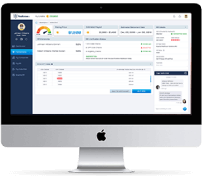
How can we help?
Fill out the short form below or call us at (888) 846-5382
Looking for software solutions to build your product?
Let's discuss your software solutions for your product in our free development acceleration call!
Get In Touch arrow_forwardDiscuss Your Project Handover with a team of expert Book a free consultation arrow_forward
About Author
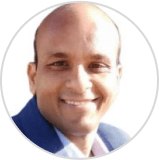
Written by Riken Shah linkedin
Riken's work motto is to help healthcare providers use technological advancements to make healthcare easily accessible to all stakeholders, from providers to patients. Under his leadership and guidance, OSP Labs has successfully developed over 600 customized software solutions for 200+ healthcare clients across continents.






